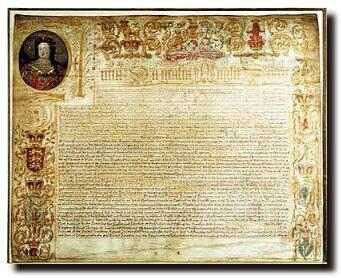The Scottish Government (as it now likes to call itself notwithstanding its statutory title) is getting all upset about the Supreme Court hearing human rights appeals in Scottish criminal cases. Article 19 of the Act of Union stated that after the Union the Scottish court system would be the same as before the Union. Before the Union in civil cases, the final court of appeal in Scotland was the independent Parliament of Scotland. There was no such right of appeal in criminal matters and the High Court of Justiciary was the final court in all Scottish criminal cases. In 1876, in the case of Mackintosh v. Lord Advocate (1876) 2 App. Cas. 41 the House of Lords (finally) decided that it did not have jurisdiction to hear a Scottish criminal appeal because whilst it had inherited the jurisdiction of the old pre-Union Scottish Parliament in civil matters, it had inherited nothing in respect of criminal matters. This has now been recognised in Westminster pre-devolution legislation which still applies - section 124(2) of the Criminal Procedure (Scotland) Act 1995.
The Scotland Act 1998 limited the legislative competence of the Scottish Parliament and the executive competence of the Scottish Ministers and the Lord Advocate in many ways, including to only legislating and acting in accordance with the Convention rights protected by HRA 1998. If complaint were made that the Parliament or the Executive had acted beyond their competence - a so called Devolution issue or minute - then the final court of appeal to determine such issues was the Judicial Committee of the Privy Council.
This body was chosen, instead of the House of Lords, precisely because it was recognised that one side wind of this new jurisdiction would be Scottish criminal cases being finally determined on human rights grounds in London. It would cause political difficulty and constitutional problems if the House of Lords were to be vested with the final constitutional power to arbitrate on devolutional issues in Scottish criminal cases where the Law Lords had hitherto had no jurisdiction. Plus the JCPC's flexible membership could be used to add Scottish Judges to the court to make it look less like English Judges deciding Scottish cases. The JCPC heard a succession of Scottish criminal human rights appeals in this manner until the foundation of the new Supreme Court.
At this stage some bright spark had the brilliant idea to transfer the JCPC's devolution jurisdiction to the Supreme Court. And this is where the error leading to the current complaints from Scotland occurred. We now have the position of a Court which inherited its jurisdiction from the House of Lords hearing cases which the House of Lords could not have heard - because of the historical and political sensitivity. The Schedule 6 devolution minute/issue jurisdiction should have remained with the JCPC in order to preserve the nicecities (and to have allowed more Scottish Judges to have sat on cases - see Lord Kirkwood sitting with Lords Hope and Clyde in the JCPC in 2000 in this case).
The JCPC and Supreme Court usually use the same judges - but the JCPC's position outside the hierarchy of the English Legal System, allows it to be presented as less of an affront to Scotland's ancient independent legal system. Such presentational issues matter and indeed the recent decision by the SCUK in Fraser has shown how upset the Scots can get when presentationally it looks like an English Court is usurping independence of the Scots judiciary (notwithstanding Lord Hope's and Lord Roger's (and indeed Lord Kerr's) presence on the Court which decided Fraser). The jurisdiction should have stayed with the JCPC, I suspect it is now too late to turn back the clock.....
The main point is that our current constitutional arrangements are an absolute historical and asymmetrical mess and the sooner we have a written and rational Constitution - the better....

Very interesting analysis, thanks. I was wondering about this the other day.
ReplyDeleteExcellent post. I have long thought that the JCPC was the right place for this jurisdiction and it should never have been moved. Furthermore, I don't really see why it could not go back if the UK Parliament were to be so minded. Doubt it will happen though.
ReplyDeleteI will link this post to one on my blog which looked at this situation though I did not take the point about the JCPC.
Given the antics of the present government re constitutional reform, I am now almost entirely persuaded that a formal (written) constitution is required. The problem is what to put in it and what to leave out.
Typical lawyer's post. A rational constitution would require rationalising of long standing and harmless anomalies - in short, the opening of cans of worms - and would cause far more problems than it would solve. After all, what is the rational solution to the problem you raise here?
ReplyDelete